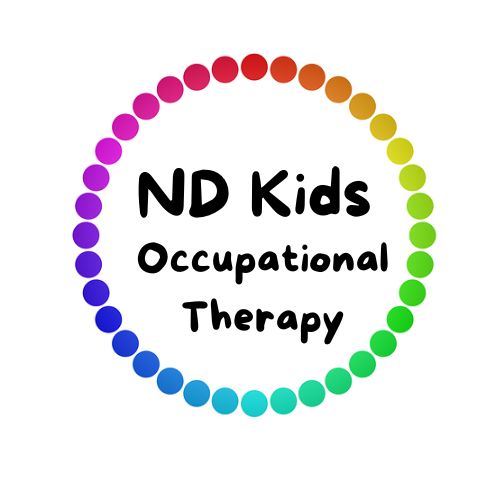
The nightmare of in person appointments
‘I’m not going!’ she shouted. My heart sank, anticipating the amount of emotional, physical and mental work it was going to take to get her to the appointment.
Does this sound familiar?
Your child finally gets an assessment that you have been waiting months or years for, but it’s a nightmare to get them there. You end up bribing them, cajoling them, using every trick and technique that you have to get them to the appointment.
You both arrive exhausted and your child can’t engage because they have spent all their energy getting there.
Your child spends the whole time on their phone and you end up just talking to the professional, wondering why you went to all that effort to get your child there. When you get home you are both completely spent and it takes the rest of the day and the next for you to recover.
If this is your experience of attending health appointments and assessments, I hear you! It is a really arduous process for many neurodivergent children, particularly autistic kids and PDAers.
In a blog post by ‘lovePDA’ the author writes:
‘We have to get agreement from our PDA child to go to the appointment, keep the appointment and live through the appointment’.
What it is about in person appointments that causes so much difficulty?
Let’s look at some of the common reasons below:
Time consuming
You have to take time off work or your other responsibilities to attend the appointment. Your child has to have time off school or their other activities.
Clothes
Your child has to get dressed in order to leave the house. This is a big demand and many children struggle with the sensory experience of dressing and wearing clothes.
Transitions
They have to stop what they are doing, which involves navigating that transition. We know that transitions are particularly difficult for autistic and PDA children.
Time Pressure
In order to make the appointment, many things have to happen on schedule which puts you and your child under pressure.
Travel
You have to travel to the appointment which takes time, money, energy and can cause sensory overwhelm.
Waiting Rooms
You have to wait in an unfamiliar environment, which is the professionals’ territory, not your child’s. This creates an immediate power difference (lovePDA).
Communication difficulties
A lot of non-verbal communication takes place at an appointment which may be unfamiliar or confusing for your child. Your child is expected to know which chair to sit in and to sit quietly while the clinician talks or gives instructions. The professional may also try to engage your child in small talk, which they feel pressure to respond to.
In addition, often clinicians want to ask you a lot of personal information about your child which can be difficult for them to hear, and awkward for you.
The professional may talk down to your child. Unless they are familiar with PDA, it is unlikely that they will treat them like an equal.
Tasks
Having to complete tasks at the appointment can be just too much after having to endure all the above.
High stakes
There is a lot of pressure in attending a long waited for or expensive appointment. If your child refuses to attend or runs out of the appointment, it can be extremely frustrating and disappointing for you.
Long recovery time
Attending a face-to-face assessment can easily take the whole day in preparation and recovery time. It uses up a lot of energy or ‘spoons’. Energy that could be better used for other things.
The entire experience is full of unpredictability and a lack of control.
I know firsthand just how difficult in person assessments can be. That’s why Neurodivergent Kids OT primarily offers online assessments.
The benefits of online assessments
Less time consuming
Taking an online assessment requires less time off work and school as it does not require any travel.
Clothing optional!
If wearing clothing is too difficult, you can angle the camera so only your child’s face is visible or you can turn the camera off. (See our safeguarding policy for more information)
Gentler transitions
If your child is engrossed in an activity and happy to be observed, they can continue with that activity. If they are willing to pause their activity, then they can return to it more quickly.
Less Time pressure
The pressure to attend the appointment on time is much reduced as you online have to turn your computer or device on.
No travel
No travel is required saving time and money! Not many Occupational Therapists are familiar with PDA in the UK, but you can access my services without needing to travel to Gloucestershire!
No waiting room
The appointment takes place virtually, in the comfort of your own home. Your child will hopefully be less anxious in their familiar home environment and you are in control of the sensory stimuli. This also provides me with the opportunity to assess your home environment, which may be useful if we are looking at what can be adapted.
Easier communication
Your child can join the assessment for only the bits that they are needed for. They don’t have to sit through us discussing things, so you have the opportunity to speak privately and more frankly with me.
I won’t talk down to your child. I will treat them as an autonomous individual and respect their choices.
Optional tasks
Your child will have a choice about which, if any, tasks or activities they engage in. I don’t expect them to do anything for me.
Low pressure
The pressure is off! If your child isn’t able to engage with me, the appointment hasn’t been ‘lost’. I will record in my assessment that they weren’t able to engage, which is useful evidence in itself, and we will continue the appointment with me getting valuable information from you. If you need to end the appointment to support your child, we can easily reschedule it.
Less recovery time
Less recovery time is needed as the demands of an online assessment are much lower than in person for the reasons provided above. I hope that the assessment will have been a positive experience for you and that your child won’t have encountered too many extra demands.
If you would like to book an online assessment for your child please email me at the address below:

